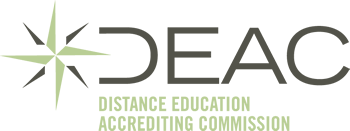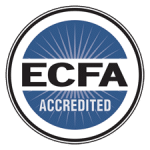Distance Education Accrediting Commission |  |
| Missouri Department of Higher Education and Workforce Development City Vision University is certified to operate as a provider of post-secondary education by the Missouri Department of Higher Education and Workforce Development. The central focus of the Proprietary School Certification Program is consumer protection. This is accomplished through the establishment of standards for school operation and regular monitoring of the operations of the university. City Vision University’s operating license is currently granted by the Department of Education of its home state, Missouri. City Vision is a member of the National Council for State Authorization Reciprocity Agreements (NC-SARA). |  |
| NAADAC Approved Academic Education Provider City Vision University is an Approved Academic Education Provider by NAADAC , the association for professional addiction counselors. We have aligned the Addiction Counseling program with the federal SAMSHA TAP21 standards for addiction counseling. This rigorous review process ensures that students receive a consistent, reliable and quality learning experience that is applicable to their careers and advances their understanding of addiction-related issues. |  |
| Evangelical Council for Financial Accountability (ECFA) Member TechMission and City Vision University is a member of the Evangelical Council for Financial Accountability (ECFA). ECFA maintains the oldest and largest association of ministries ensuring they follow standards for financial accountability, transparency, fundraising, and board governance. ECFA is not an academic accreditor, but instead ensures that ministries are following their standards for ministries and nonprofits. |  |
We have never had a student who wasn’t accepted into a graduate program based on our degrees, although in some cases with state schools we have had to advocate for them.
Our alumni have been accepted into the following schools: Grand Canyon University, Bay Path University, Southwest Baptist Seminary, Fuller Seminary, California University of Pennsylvania, James Madison University, Liberty University, North Park University, Southern New Hampshire University, St Mary’s University of Twickenham, Trinity Bible College, Bakke Graduate School and AG Theological Seminary.
City Vision is nationally accredited by the Distance Education Accrediting Commission (DEAC), which is recognized by the US Department of Education and CHEA. The US Department of Education does not recognize a distinction between regional and national accreditation in its standards and recently stated, “The Department does not believe…that rejecting transfer credits, an application for admission to graduate school, or a request to sit for a State occupational licensing exam on the basis of the type of Department recognized accreditation is justified.” See the US Department of Education letter on National vs. Regional Accreditation.
We have heard from a number of our students that other schools (sadly, even Christian schools) use scare tactics as a part of their sales practice, and misrepresent the significance of the distinction between national and regional accreditation.
From a Christian social justice perspective, many have called the distinction between regional and national accreditation a cartel that is a major injustice that hurts the poor. Having said that, there are those that still maintain this distinction, so we address their concerns in this section. This letter from Dr. Leah Matthews addresses some concerns about the quality of DEAC accreditation.
Functionally, our experience has been that the distinction between regional and national accreditation is primarily of importance for:
Ultimately, choosing City Vision’s national accreditation over a regionally accredited school is a question of value: you get more for your money with City Vision. If you need the “gold plating” of regional accreditation for one of the reasons described above, then it may be worth paying 2-10 times more to get a degree with regional accreditation from another school. However, because of the career choices of our students, they prefer to choose the value of City Vision rather than more expensive high-end options.